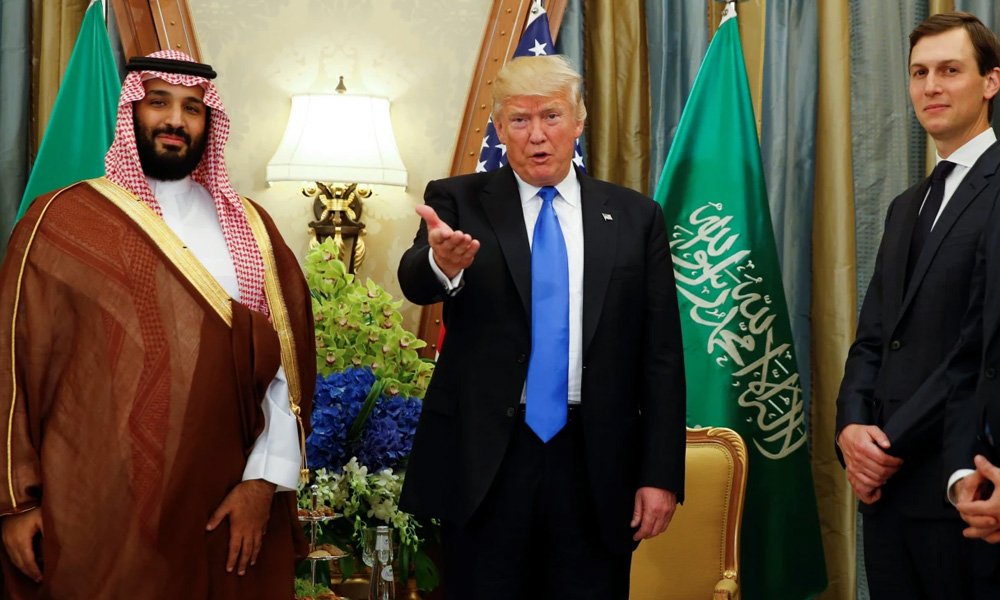Fahda Bint Falah Al Hithlain: The Untold Story Of Saudi Arabia's Iconic Figure
Ever heard of Fahda bint Falah Al Hithlain? Well, buckle up because we're diving deep into the life, legacy, and fascinating story of this remarkable woman who left an indelible mark on Saudi Arabian history. Fahda bint Falah Al Hithlain isn’t just a name; she’s a symbol of resilience, tradition, and cultural heritage. Let’s uncover the layers of her story that have inspired generations.
Picture this: a woman born in a time when the world was still grappling with the complexities of modernity and tradition. Fahda bint Falah Al Hithlain emerged not just as a figure of influence but as a beacon of hope for many. Her journey is one of those untold tales that deserve to be shared with the world. So, why are we talking about her today? Because her story is more relevant than ever, especially in understanding the rich tapestry of Saudi Arabian culture.
In this article, we’ll explore Fahda’s life, her contributions, and the lasting impact she’s had on society. Whether you’re a history enthusiast, a culture lover, or just someone curious about the hidden gems of Saudi Arabia, this is the article for you. Let’s get started!
Read also:Littlewarrenleaks The Untold Story Behind The Viral Sensation
Contents:
- Biography
- Early Life and Family Background
- Cultural Impact
- Traditional Values in Modern Times
- Royal Connections
- Legacy and Influence
- A Modern Perspective on Her Life
- Challenges and Triumphs
- Frequently Asked Questions
- Conclusion
Biography
Before we dive deeper, let’s get the basics straight. Fahda bint Falah Al Hithlain is more than just a name; she’s a symbol of strength, culture, and tradition. Born into the Al Hithlain tribe, Fahda’s life was intertwined with the rich history and heritage of Saudi Arabia. Her biography isn’t just about her; it’s about the people, traditions, and values she represented.
Here’s a quick glimpse:
| Full Name | Fahda bint Falah bin Sultan Al Hithlain |
|---|---|
| Birth | 1913 (Exact date uncertain) |
| Tribe | Al Hithlain |
| Spouse | King Abdulaziz Al Saud |
| Legacy | Mother of Prince Sultan bin Abdulaziz |
Now that we’ve got the basics covered, let’s explore her story further.
Early Life and Family Background
Growing up in the Al Hithlain tribe, Fahda bint Falah Al Hithlain was surrounded by a culture steeped in tradition and values. The Al Hithlain tribe, known for its rich history and influence, played a significant role in shaping Fahda’s worldview. Her early life wasn’t easy, but it was filled with lessons that would later define her character.
Her family background was one of honor and respect. The Al Hithlain tribe, known for its loyalty and strength, instilled in Fahda a sense of duty and responsibility that would guide her throughout her life. Imagine growing up in a world where every decision was tied to tradition and honor. That’s the world Fahda grew up in.
Read also:Kaitlyn Krems Nudes The Truth Behind The Headlines And How To Protect Yourself Online
Traditions and Upbringing
Let’s talk about the traditions that shaped Fahda’s upbringing. The Al Hithlain tribe placed a strong emphasis on education, family values, and community service. Fahda was taught the importance of these values from a young age. Here are a few traditions that played a crucial role:
- Community gatherings: These were more than just social events; they were opportunities to strengthen bonds and learn from elders.
- Storytelling: A key part of the culture, storytelling was used to pass down wisdom and history.
- Respect for elders: This was a non-negotiable value in the tribe, and Fahda carried this value with her throughout her life.
Cultural Impact
When we talk about Fahda bint Falah Al Hithlain, we can’t ignore her cultural impact. As a member of the Al Hithlain tribe and later as the wife of King Abdulaziz Al Saud, Fahda became a symbol of cultural preservation. Her influence extended beyond her immediate family and into the broader Saudi Arabian society.
Her role in preserving cultural traditions was significant. Fahda wasn’t just a passive observer; she was an active participant in maintaining the cultural heritage of her people. Whether it was through her involvement in community events or her support for traditional arts, Fahda made sure that the rich culture of her tribe was not lost to modernity.
Traditional Arts and Crafts
One of the ways Fahda contributed to cultural preservation was through her support for traditional arts and crafts. She understood the importance of these art forms in maintaining the identity of her people. Here are a few examples:
- Weaving: Fahda encouraged the continuation of traditional weaving techniques, which were at risk of being lost.
- Music: She supported traditional music forms, ensuring that they remained an integral part of cultural celebrations.
- Ceremonial practices: Fahda played a role in preserving ceremonial practices that were unique to her tribe.
Traditional Values in Modern Times
The world was changing rapidly during Fahda’s lifetime, but she remained steadfast in her commitment to traditional values. This was no easy task, especially as modernity began to influence every aspect of life. Fahda’s ability to balance tradition with modernity is something that continues to inspire people today.
Let’s break it down:
- Education: Fahda believed in the importance of education, not just for herself but for future generations.
- Women’s roles: She championed the idea that women could be both traditional and modern, breaking barriers in her own way.
- Community service: Fahda’s dedication to serving her community set an example for others to follow.
Royal Connections
One of the most significant aspects of Fahda’s life was her connection to the royal family. As the wife of King Abdulaziz Al Saud, Fahda played a crucial role in shaping the future of Saudi Arabia. Her influence extended beyond her personal life and into the political and social spheres.
Her marriage to King Abdulaziz wasn’t just a personal union; it was a union of tribes and cultures. Fahda’s role in this union was pivotal, as she brought the strength and values of the Al Hithlain tribe to the royal family. This connection helped strengthen the bonds between different tribes and communities in Saudi Arabia.
Impact on the Royal Family
Fahda’s impact on the royal family was profound. She was the mother of Prince Sultan bin Abdulaziz, who later became the Crown Prince of Saudi Arabia. Her influence on her children and grandchildren was evident in their commitment to tradition and modernity.
- Prince Sultan: Known for his leadership and vision, Prince Sultan carried forward the values instilled in him by his mother.
- Family values: Fahda’s emphasis on family values was passed down through generations, shaping the royal family’s approach to governance and community service.
Legacy and Influence
When we talk about Fahda bint Falah Al Hithlain, we’re talking about a legacy that continues to inspire. Her influence extends beyond her immediate family and into the broader Saudi Arabian society. Fahda’s commitment to tradition, education, and community service has left an indelible mark on the country.
Her legacy is evident in the way modern Saudi Arabia balances tradition with progress. Fahda’s story is a testament to the power of tradition in shaping the future. Whether it’s through her contributions to cultural preservation or her influence on the royal family, Fahda’s impact is undeniable.
Modern Relevance
In today’s world, Fahda’s story is more relevant than ever. As countries grapple with the challenges of modernity and tradition, Fahda’s approach offers valuable insights. Here are a few ways her legacy continues to influence:
- Women’s empowerment: Fahda’s story is a powerful reminder of the role women can play in shaping society.
- Cultural preservation: Her commitment to preserving cultural heritage serves as a model for others.
- Community service: Fahda’s dedication to serving her community inspires people to give back.
A Modern Perspective on Her Life
Looking at Fahda’s life from a modern perspective, we see a woman who defied the odds and made a lasting impact. Her ability to balance tradition with modernity is something that resonates with people today. In a world where change is constant, Fahda’s story offers a lesson in adaptability and resilience.
Her life teaches us that tradition and modernity aren’t mutually exclusive. Fahda showed us that it’s possible to honor our past while embracing the future. This is a lesson that continues to inspire people around the world.
Lessons for Today
What can we learn from Fahda’s life? Here are a few key takeaways:
- Adaptability: Fahda’s ability to adapt to changing times is a valuable lesson for us all.
- Resilience: Her strength in the face of challenges is something we can all aspire to.
- Legacy: Fahda’s commitment to leaving a positive legacy is a reminder of the importance of making a difference.
Challenges and Triumphs
No story of triumph is complete without challenges, and Fahda’s life was no exception. She faced numerous challenges throughout her life, but her resilience and strength helped her overcome them all. Whether it was navigating the complexities of royal life or preserving her cultural heritage, Fahda faced each challenge with grace and determination.
Her triumphs were many, from her contributions to cultural preservation to her influence on the royal family. Fahda’s ability to overcome challenges and achieve success is something that continues to inspire people today.
Overcoming Obstacles
Here are a few examples of how Fahda overcame obstacles:
- Preserving traditions: Fahda’s commitment to preserving cultural traditions in the face of modernity was a significant achievement.
- Women’s roles: Her influence on the role of women in society was groundbreaking for her time.
- Community service: Fahda’s dedication to serving her community set a standard for others to follow.
Frequently Asked Questions
Here are some common questions about Fahda bint Falah Al Hithlain:
- Who was Fahda bint Falah Al Hithlain? Fahda was a member of the Al Hithlain tribe and the wife of King Abdulaziz Al Saud. She played a significant role in shaping the cultural and social landscape of Saudi Arabia.
- What was her impact on Saudi Arabian culture? Fahda’s influence extended to cultural preservation, education, and community service, leaving a lasting legacy in Saudi Arabian society.
- How did she balance tradition and modernity? Fahda’s ability to adapt to changing times while preserving her cultural heritage is a testament to her resilience and strength.
Conclusion
As we wrap up this article, it’s clear that Fahda bint Falah Al Hithlain’s story is one that deserves to be told and retold. Her contributions to Saudi Arabian culture, her influence on the royal family, and her legacy of resilience and strength continue to inspire people around the world. Whether you’re a history enthusiast, a culture lover, or just someone curious about the hidden gems of Saudi Arabia, Fahda’s story is one that resonates.
So, what’s next? Leave a comment, share this article, or dive deeper into the rich history and culture of Saudi Arabia. Fahda’s story is just the beginning



